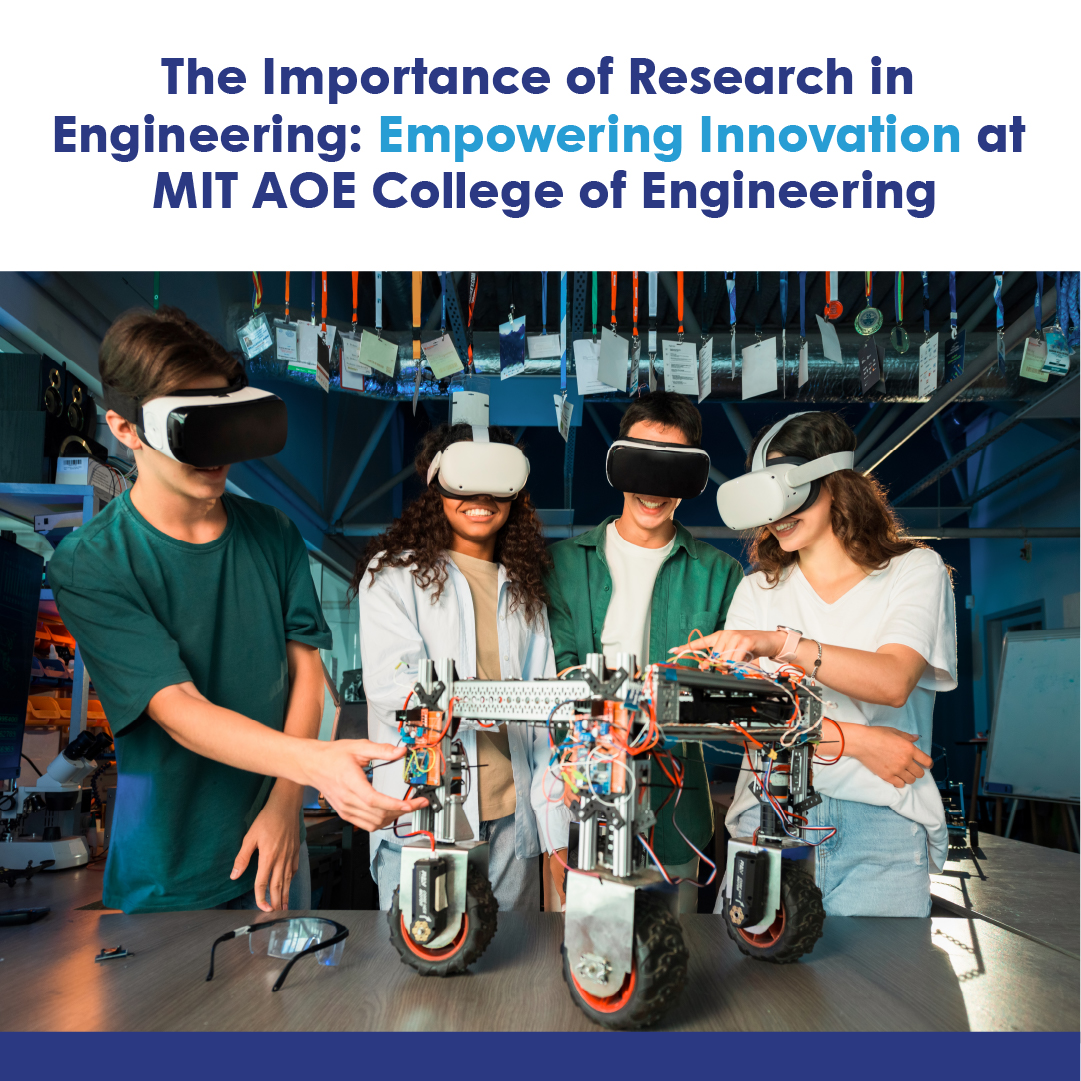Top Career Options After B Tech Civil Engineering
A B Tech in Civil Engineering degree opens the door to a wide range of career opportunities. The incorporation of Artificial Intelligence (AI) into civil engineering has broadened these opportunities, creating novel roles that combine traditional civil engineering with cutting-edge technology.
If you're a student at a top civil engineering college in Pune or another prestigious institution, here's a list of some of the best career options you can pursue after earning your degree, particularly with AI playing a significant role in the industry.
1. structural engineer
Traditional way:
As a structural engineer, you design and analyze building and infrastructure components to ensure they can withstand different loads and stresses.
AI integration
AI integration can improve structural engineering by predicting structure behavior under various conditions through machine learning models. AI tools can analyze massive amounts of data to optimize designs, identify potential flaws, and recommend improvements, thereby making structures safer and more efficient.
2. Construction Manager.
Traditional way:
Construction managers manage projects from beginning to end, including resources, schedules, and budgets.
AI integration:
AI integration can transform construction management by enabling predictive analytics for project planning, risk management, and resource allocation. AI-powered software can track construction sites in real time, increasing safety and efficiency.
3. Urban Planner.
Traditional Role:
Urban planners create land-use plans to promote sustainable growth and development.
AI integration :
AI integration helps urban planners analyze data on population growth, traffic patterns, and environmental impacts. AI tools can help create smarter, more sustainable cities by optimizing resource use and reducing environmental footprints.
4. Transportation Engineer.
Traditional Role:
Transportation engineers typically design, develop, and maintain transportation systems such as roads, bridges, and public transit.
AI integration :
AI integration can enhance transportation engineering by optimizing traffic flow, reducing congestion, and increasing safety. AI algorithms can analyze traffic data to create smarter transportation networks and self-driving car technologies.
5. Geotechnical Engineer.
Traditional Role:
Traditionally, geotechnical engineers analyze soil and rock properties to design foundations, tunnels, and earthworks.
AI integration :
AI can help geotechnical engineers predict soil behavior, optimize foundations, and prevent landslides. Machine learning models can use geological data to identify potential risks and recommend mitigation strategies.
6. Environmental engineer.
Traditional Role:
Traditionally, environmental engineers solve environmental issues like pollution control and waste management.
AI integration :
AI integration can assist environmental engineers in analyzing data to predict pollution levels, monitor ecosystems, and optimize waste management. AI-powered tools can help improve environmental impact assessments and promote sustainable development.
7. Hydraulic Engineer
Traditional Role:
Hydraulic engineers design and manage water resources such as dams, levees, and treatment systems.
AI integration :
AI integration can enhance hydraulic engineering by optimizing water distribution networks, predicting flood risks, and improving water treatment methods. AI models can analyze hydrological data to help manage water resources more efficiently.
8. Building Information Modeling (BIM) Specialist.
Traditional Role:
specialists create and manage digital representations of buildings and infrastructure, enabling collaboration among architects, engineers, and contractors.
AI integration :
AI integration improves BIM by automating design processes, identifying conflicts, and optimizing construction schedules. AI-enabled BIM tools can enhance project visualization and coordination.
9. Civil Engineering Consultant.
Traditional Role:
Civil engineering consultants offer expert advice on construction projects, covering design, project management, and regulatory compliance.
AI integration :
AI can assist consultants with advanced analytics and predictive modeling. AI tools can assist with risk assessment, project feasibility studies, and decision-making processes.
10. R&D Engineer
Traditional Role:
Traditionally, R&D engineers develop new materials, technologies, and methods for civil engineering applications.
AI integration :
AI can enhance R&D by analyzing data, simulating processes, and discovering new materials and techniques. AI can hasten the development of smart materials and sustainable construction methods.
11. Academic and Teaching Roles.
Traditional Role:
Traditionally, academic professionals teach civil engineering courses, conduct research, and publish scholarly articles.
AI integration :
AI integration can benefit academics by offering tools for data analysis, research simulation, and online education. AI-powered educational tools can improve teaching techniques and student engagement.
12. Entrepreneurship & Startups
Traditional Role:
Civil engineers can start their own firms and provide consulting, construction, or specialized engineering services.
AI integration :
AI integration enables entrepreneurs to create innovative solutions for the construction industry. AI-powered startups may provide services such as automated construction management, smart infrastructure solutions, and predictive maintenance.
Conclusion
The field of civil engineering is rapidly evolving due to the introduction of AI technologies. Graduates of a reputable civil engineering college in Pune or any other top institution can pursue a variety of career paths that combine traditional engineering principles with modern AI advancements. Whether you choose to become a structural engineer, a transportation engineer, or an entrepreneur, the integration of AI in civil engineering offers exciting opportunities for innovation and excellence.
Embrace emerging technologies and explore the endless possibilities that await you in the dynamic world of civil engineering. With AI, the future of civil engineering is more than just building structures; it is also about developing smart, sustainable, and efficient solutions to tomorrow's challenges.
OUR RECENT BLOG



